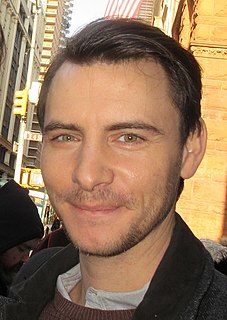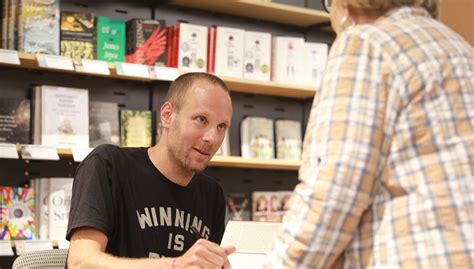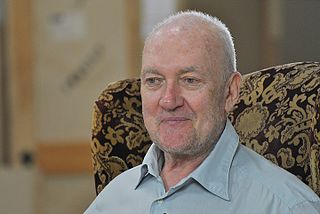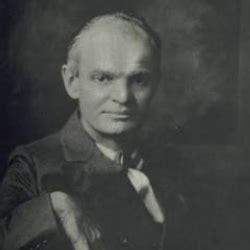A Quote by Harry Lloyd
It's always crude to link Dickens back to the blacking factory where he was sent to work aged 12 when his father was imprisoned in Marshalsea Prison for bad debt, but it was obviously a huge part of him.
Related Quotes
Were I to go down into the market-place, armed with the powers of witchcraft, and take a peasant by the shoulders and whisper to him, 'In your lifetime, have you known peace?' wait for his answer, shake his shoulders and transform him into his father, and ask him the same question, and transform him in his turn to his father, I would never hear the word 'Yes,' if I carried my questioning of the dead back for a thousand years. I would always hear, 'No, there was fear, there were our enemies without, our rulers within, there was prison, there was torture, there was violent death.
I reached out to [Brett Favre] early on; sent him some of my books and a letter. Then I had two or three arranged times with him, and was blown off. Then I sent him another letter, and he sent me a text, explaining that he didn't wish to talk. I'm not mad - it's his right, obviously. Plus, his family members were amazingly open and cool.
DEBT, n. An ingenious substitute for the chain and whip of the slave-driver. As, pent in an aquarium, the troutlet Swims round and round his tank to find an outlet, Pressing his nose against the glass that holds him, Nor ever sees the prison that enfolds him; So the poor debtor, seeing naught around him, Yet feels the narrow limits that impound him, Grieves at his debt and studies to evade it, And finds at last he might as well have paid it.
My father was brought to this country as an infant. He lost his mother as a teenager. He grew up in poverty.Although he graduated at the top of his high school class, he had no money for college. And he was set to work in a factory but, at the last minute, a kind person in the Trenton area arranged for him to receive a $50 scholarship and that was enough in those days for him to pay the tuition at a local college and buy one used suit. And that made the difference between his working in a factory and going to college.
Don't drop him," said Peter's mother to his father. "Don't you dare drop him." She was laughing. "I will not," said his father. "I could not." For he is Peter Augustus Duchene, and he will always return to me. Again and again, Peter's father threw him up in the air. Again and again, Peter felt himself suspended in nothingness for a moment, just a moment, and then he was pulled back, returned to the sweetness of the earth and the warmth of his father's waiting arms. "See?" said his father to his mother. "Do you see how he always comes back to me?
When our Lord says, 'I have not spoken of Myself' (Jn. 12:49), and again, 'As the Father said to Me, so I speak' (Jn. 12:50), and 'The word which you hear is not mine, but the Father's Who sent Me' (Jn. 14:24), and in another place, 'As the Father commanded Me, even so I do' (Jn. 14:31), it is not because He lacks deliberate purpose or power of initiative, nor yet because He has to wait for the preconcerted key-note, that He employs language of this kind. His object is to make it plain that His own will is connected in indissoluble union with the Father.
For Charlie and the Chocolate Factory, he came to me and said, "I want to do everything that's in the book, and as much more as you need, so that it all makes sense." I was like, "Okay!" And then, I would pitch back to him my love for Charlie Bucket's family and how lucky Charlie was, and that I felt so bad for Willy Wonka, shut up in his factory, all alone with these crazy Oompa Loompas.
Henry James once defined life as that predicament which precedes death, and certainly nobody owes you a debt of honor or gratitude for getting him into that predicament. But a child does owe his father a debt, if Dad, having gotten him into this peck of trouble, takes off his coat and buckles down to the job of showing his son how best to crash through it.




































